CppCon 2022 import CMake, CMake and C++20 Modules -- Bill Hoffman
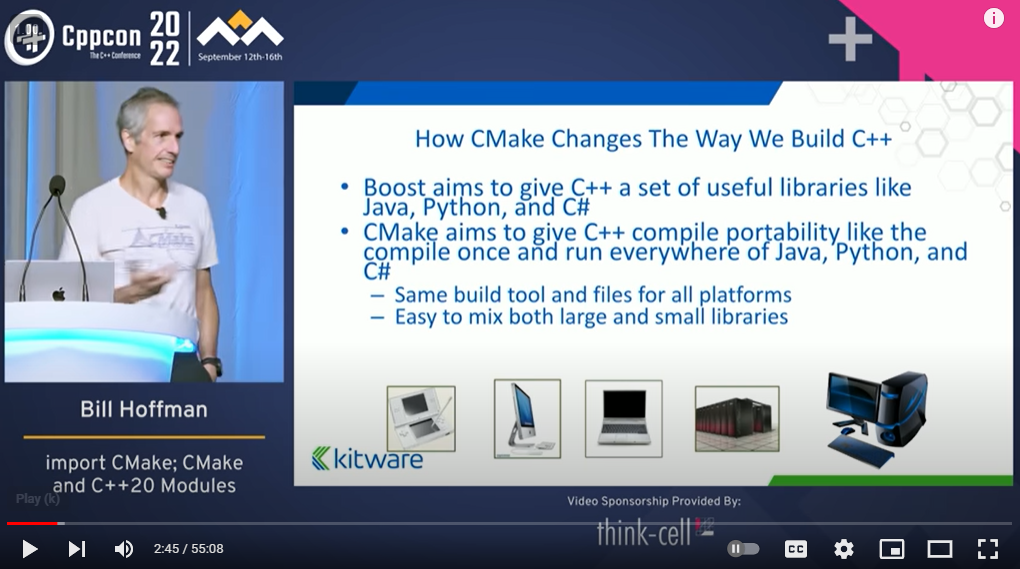 Registration is now open for CppCon 2023! The conference starts on October 1 and will be held in person in Aurora, CO. To whet your appetite for this year’s conference, we’re posting videos of some of the top-rated talks from last year's conference. Here’s another CppCon talk video we hope you will enjoy – and why not register today for CppCon 2023!
Registration is now open for CppCon 2023! The conference starts on October 1 and will be held in person in Aurora, CO. To whet your appetite for this year’s conference, we’re posting videos of some of the top-rated talks from last year's conference. Here’s another CppCon talk video we hope you will enjoy – and why not register today for CppCon 2023!
import CMake, CMake and C++20 Modules
by Bill Hoffman
Summary of the talk:
Originally developed as part of the National Institutes of Health (NIH) open source medical segmentation and registration toolkit ITK in 1999, CMake has grown to take on a vital role in the C++ ecosystem. Bill Hoffman, a founder of Kitware (www.kitware.com), and the creator of CMake will talk about where CMake is in 2022. The talk will start with a brief history of CMake and how it fits into the world of C++. It will then talk about recent developments to support C++20 modules.
For most of CMake's history, CMake has played catch up and implemented new features as compilers and IDEs have been released. With C++ modules, CMake developers have engaged the standards committee and compiler vendors to help craft the standard in such a way that CMake and other build systems can more seamlessly implement C++ modules. CMake has worked with Fortran modules for many years and has updated the ninja build tool to be able to dynamically update dependency information as it is discovered. To do this CMake requires a Fortran parser built into CMake. For obvious reasons CMake does not want to get into having its own C++ parser. This is the main driving force for pushing this work into the compilers. This talk will go over the road map for CMake C++ module support.
In addition to the history of CMake, C++ module support, this talk will include material covering important CMake features supporting the seamless building, testing and deployment of C++ across most computing platforms. In summary, listeners will learn about CMake origins, the roadmap of C++ module support in CMake and get an overview of the current set of features in CMake.

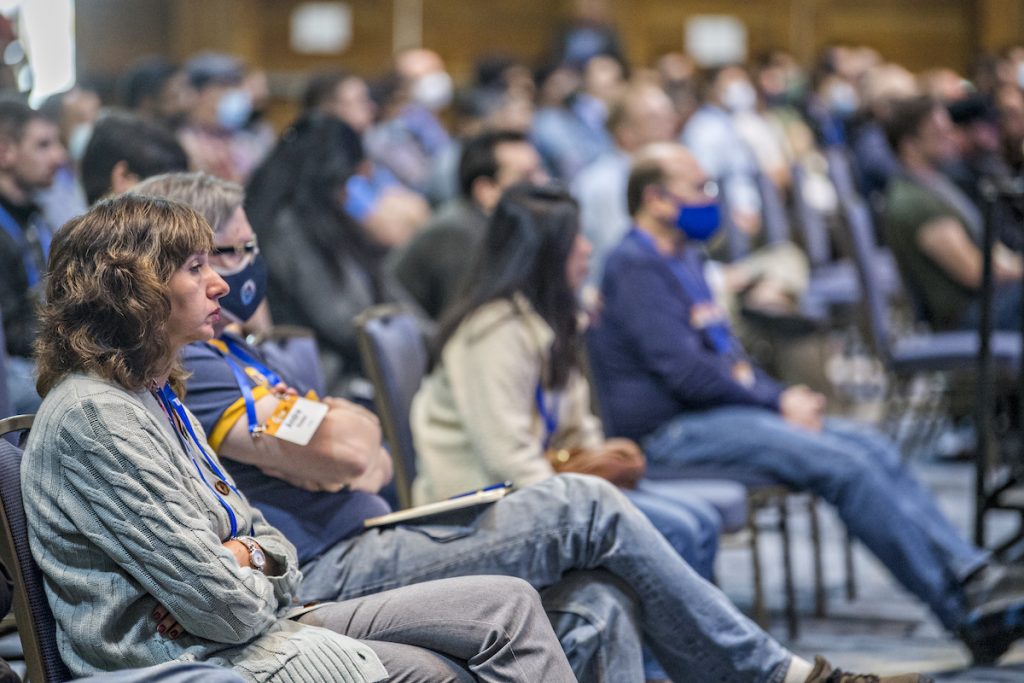 On October 2,
On October 2,  Suppose you want to write a template function that accepts any specialization of
Suppose you want to write a template function that accepts any specialization of 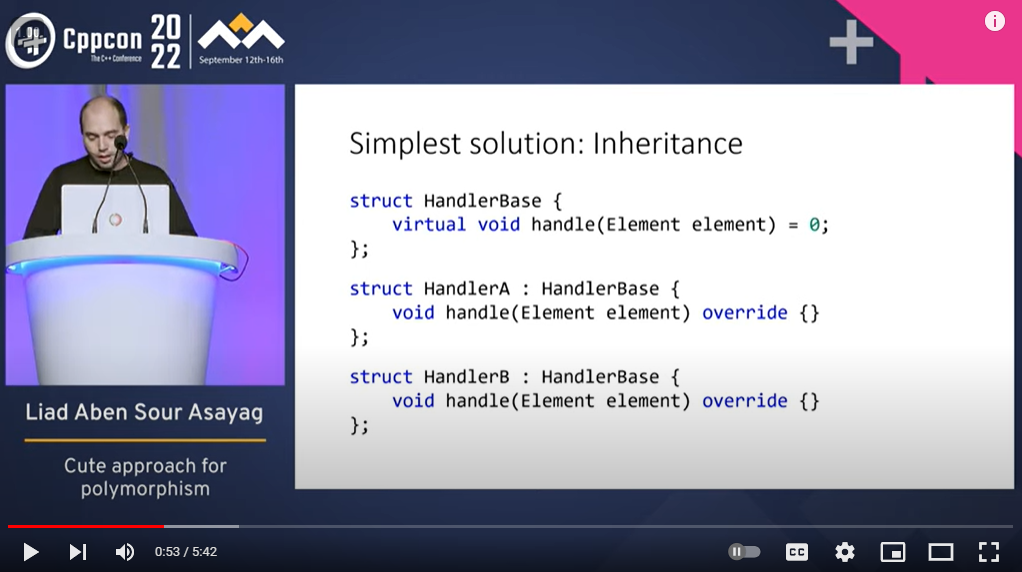 Registration is now open for CppCon 2023! The conference starts on October 1 and will be held
Registration is now open for CppCon 2023! The conference starts on October 1 and will be held 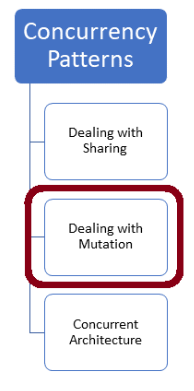 I continue my journey with concurrency patterns in today's post. The Thread-Safe Interface fits very well when the critical sections are just objects.
I continue my journey with concurrency patterns in today's post. The Thread-Safe Interface fits very well when the critical sections are just objects. Fold expressions exist in C++ since C++17 and significantly affect how we treat variadic templates. Back in the day, I wrote about
Fold expressions exist in C++ since C++17 and significantly affect how we treat variadic templates. Back in the day, I wrote about 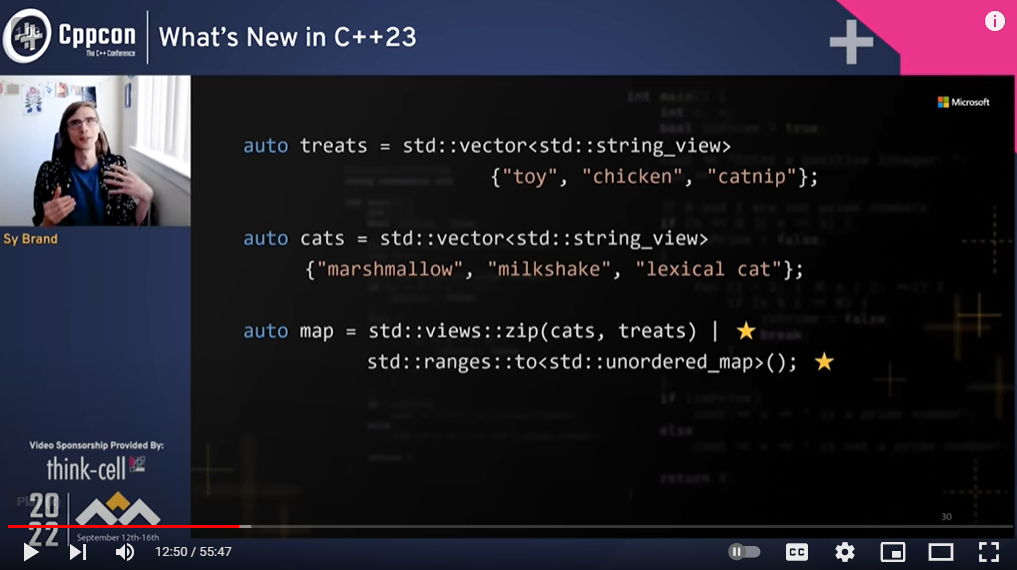 Registration is now open for CppCon 2023! The conference starts on October 1 and will be held
Registration is now open for CppCon 2023! The conference starts on October 1 and will be held 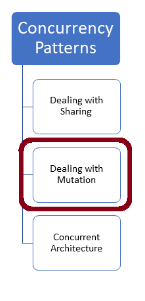 Locking is a straightforward idea to protect a critical section. A critical section is a section of code that, at most, one thread can use at any time.
Locking is a straightforward idea to protect a critical section. A critical section is a section of code that, at most, one thread can use at any time.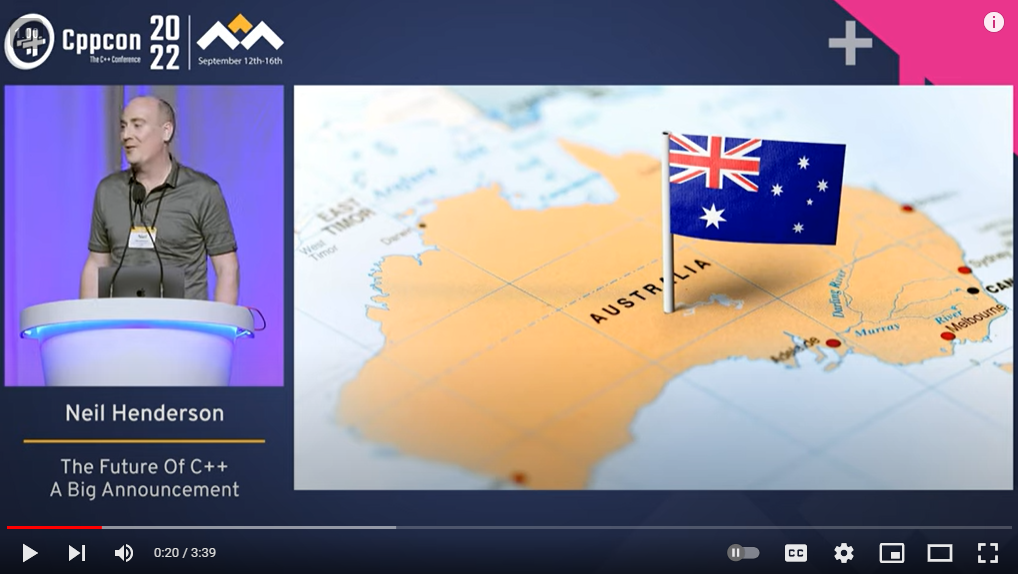 Registration is now open for CppCon 2023! The conference starts on October 1 and will be held
Registration is now open for CppCon 2023! The conference starts on October 1 and will be held